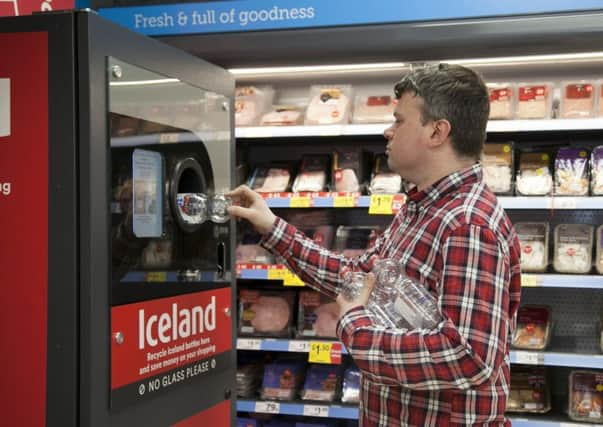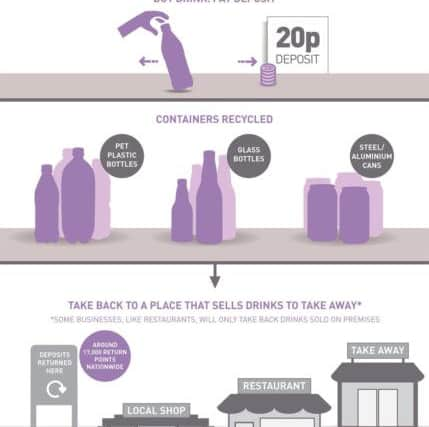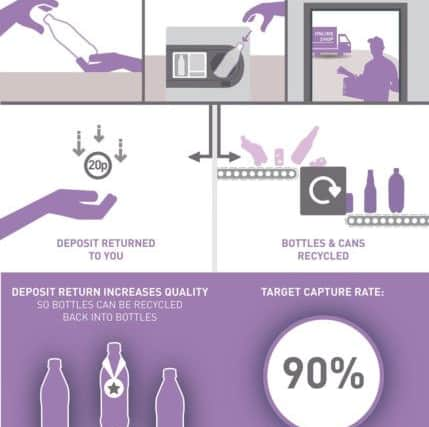Scotland’s deposit-return system: how it will work
This article contains affiliate links. We may earn a small commission on items purchased through this article, but that does not affect our editorial judgement.


It’s expected to be up and running before the end of March 2021.
Research suggests the new scheme will see an extra 140,000 cans and bottles go to recycling instead of trash each day across the country.
Advertisement
Hide AdAdvertisement
Hide AdSimilar systems are already successfully operating in many countries overseas.


The Scottish system will take back cans, glass bottles and plastic containers made from polyethylene terephthalate (PET) and sized from 50ml up to three litres. Plastic milk bottles, tetra paks and pouches are not currently included, though these may be added at a later date.
Shoppers will pay an extra 20p on the cost price of drinks sold in these packages, which will be refunded when they are brought back for recycling.
People will be able to take their empties back to retailers who sell the products to get their money back, either as a voucher that can be used to offset other purchases or as hard cash.
Large retailers will have reverse vending machines, providing an automatic return system for public use.


Smaller retailers will collect over the counter.
Both will be reimbursed by the system operator for their time, space and other costs. Where a group of shops are close to each other they may be able to pick just one to take returns.
There will also be an option to donate deposits to charity, which is a common practice in other countries - up to 40 per cent of people do this.
Plans include developing a new mobile app that will users to manage their refunds.
Advertisement
Hide AdAdvertisement
Hide AdCurrently, local taxpayers cover the costs of dealing with empty drinks containers, through council recycling, litter collection and bin emptying services. Under the new system these costs will be shifted onto drinks producers.
Further funding will come from the sale of high-quality recyclable materials and from any unredeemed deposits – where empties are not returned.
Mixed kerbside recycling will continue to be provided by local authorities, but single-material waste is more valuable and should support new businesses in the circular economy sector.
Scottish ministers are continuing discussions with Westminster, which is also due to establish a DRS across the rest of the UK. It’s hoped there will be a uniform system across the nation in order to maximise convenience for both businesses and the public.